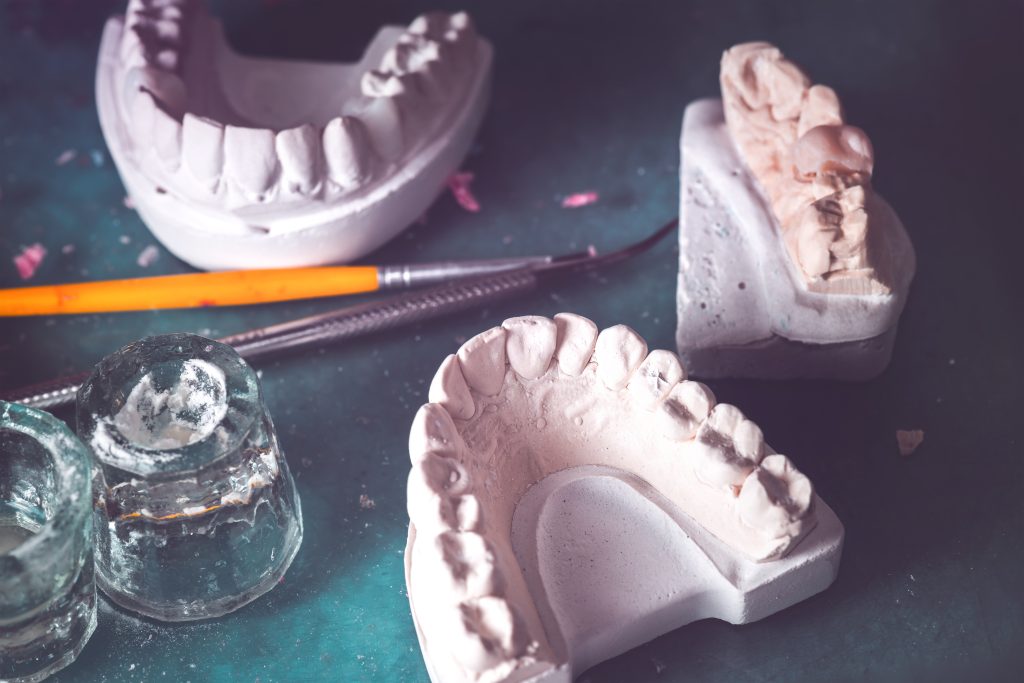Restore your smile and confidence with high-quality dental crowns and bridges at Reston Serenity Smiles. Whether you are dealing with damaged, missing, or weakened teeth, our restorative dentistry solutions provide a functional and natural-looking smile that lasts for years.

Revitalize Your Smile with Crowns and Bridges
At Reston Serenity Smiles, we offer customized dental crowns and bridges designed to restore the strength, functionality, and aesthetics of your smile.
What Are Dental Crowns?
A dental crown is a custom-made cap that covers a damaged or weakened tooth to restore its shape, size, and strength. Crowns are also used to enhance the appearance of discolored or irregular teeth. Our crowns are made from durable, tooth-colored materials that blend seamlessly with your natural teeth.
What Are Dental Bridges?
Dental bridges are used to replace one or more missing teeth by anchoring a false tooth (or teeth) between two crowns placed on adjacent healthy teeth or dental implants. Bridges help restore your ability to chew, speak, and smile confidently while preventing adjacent teeth from shifting out of place.
Benefits of Dental Crowns and Bridges
Choosing crowns and bridges from Reston Serenity Smiles offers numerous benefits:
- Restored Functionality: Eat and speak with ease, just like you would with natural teeth.
- Enhanced Appearance: Achieve a beautiful, natural-looking smile.
- Durability: Our crowns and bridges are crafted from high-quality materials designed to last.
- Improved Oral Health: Protect your teeth from further damage and maintain proper alignment.
Our Crown and Bridge Process
- Comprehensive Consultation
We begin with a thorough evaluation to understand your needs and determine the best treatment options. - Customized Treatment Plan
Based on your unique situation, we create a personalized plan for your crown or bridge placement. - Preparation and Placement
For crowns: We prepare the affected tooth and take precise impressions to craft your custom crown. A temporary crown is placed while your permanent one is being fabricated.
For bridges: We prepare the supporting teeth and place a temporary bridge after taking impressions for your custom bridge. - Final Restoration
Once your crown or bridge is ready, we ensure a perfect fit and secure it into place, restoring your smile and confidence.
Why Choose Reston Serenity Smiles for Crowns and Bridges?
- Advanced Technology: Our practice uses state-of-the-art tools for precise and comfortable treatments.
- Experienced Team: Dr. Majid Dastgir and Dr. Tonya Budala have extensive experience in restorative dentistry.
- Patient-Centered Care: We prioritize your comfort and satisfaction, ensuring you feel confident in your treatment.
FAQs About Crowns and Bridges
- How long do dental crowns and bridges last?
With proper care, crowns and bridges can last 10-15 years or longer. Regular check-ups and good oral hygiene are essential. - Are crowns and bridges noticeable?
Our crowns and bridges are made from tooth-colored materials, ensuring a natural look that blends seamlessly with your smile. - Are crowns and bridges covered by insurance?
Many dental insurance plans cover a portion of the cost for crowns and bridges. Our team will help you understand your coverage and payment options. - Do crowns or bridges require special care?
Caring for crowns and bridges is simple. Brush and floss daily, avoid hard or sticky foods, and visit us regularly for professional cleanings. - Can I replace an old crown or bridge?
Yes! If your existing restoration is worn, damaged, or uncomfortable, we can replace it with a new, high-quality solution.

Let's begin your journey to a happier and healthier smile!
At Reston Serenity Smiles, we’re dedicated to helping you achieve a healthy, functional, and beautiful smile. If you’re considering crowns or bridges, contact us today to schedule a consultation with the trusted team for restorative dentistry in Reston, VA!
